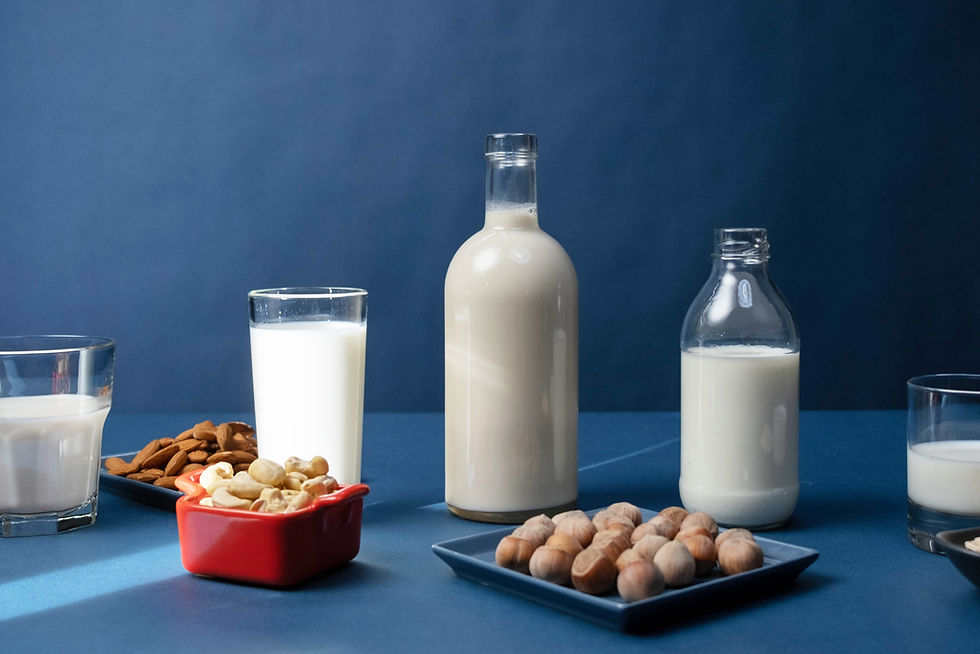Eat The Rainbow - Orange Foods
- The Young Vegan

- Dec 22, 2021
- 2 min read
Mandarins, oranges, peppers, persimmons. Carrots, cantaloupes, peaches and pumpkins. There are so many yummy orange foods, we eat them because we like them, but there is more to love than just the flavour.

What Makes Foods Orange?
The compounds in foods that give them their colour, their pigments, are known as phytonutrients. These chemicals don't just add colour to food, they also come with health benefits. In orange foods the colour comes from the carotenoids, beta carotene and xanthophylls.
Beta carotene is the most well known carotenoid and, as the name suggests, it is found in abundance in carrots, but also oranges, sweet potatoes and many other fruits and vegetables. The body uses beta carotene to make vitamin A, a fat-soluble vitamin which is vital for eye and skin health. Beta carotene can also be found in spinach, it doesn't make the spinach leaves orange due to the high levels of chlorophyll in the plant that creates the green that we see.
Xanthophylls are the other common phytonutrient group that give foods a yellow-orange colour. Found in pumpkins, cantaloupe melons, papaya and apricots they have anti-oxidant properties and help protect the body from free radical damage that can cause disease and cancer. This includes protecting the skin from harms caused by the sun.
Other Benefits
The compounds found in orange coloured foods have a huge number of benefits:
Vitamin A - also known as retinol, has several important functions. These include: helping your body's natural defence against illness and infection (the immune system) work properly; helping vision in dim light; keeping skin and the lining of some parts of the body, such as the nose, healthy.
Vitamin C - Also known as ascorbic acid, has several important functions, including: helping to protect your bodies cells and keeping them healthy; maintaining healthy skin, blood vessels, bones and cartilage; helping with wound healing.
Vitamin E - Vitamin E is a necessary part of maintaining healthy skin and eyes, and strengthening the body's natural defence against illness and infection (the immune system).
Fibre - Fibre is hugely important for healthy digestion, aiding the movement of food through the gut. Increased levels of fibre are associated with lower risk of colon cancer.
Magnesium - Magnesium is a mineral that helps to turn the food we eat into energy, it is also involved in the production of hormones that are important for bone health.
Potassium - Potassium is a mineral that helps to control the balance of fluids within our bodies, potassium is also vital in ensuring that heart muscle works properly.




شيخ روحاني
رقم شيخ روحاني
الشيخ الروحاني
الشيخ الروحاني
شيخ روحاني سعودي
رقم شيخ روحاني
شيخ روحاني مضمون
Berlinintim
Berlin Intim
جلب الحبيب